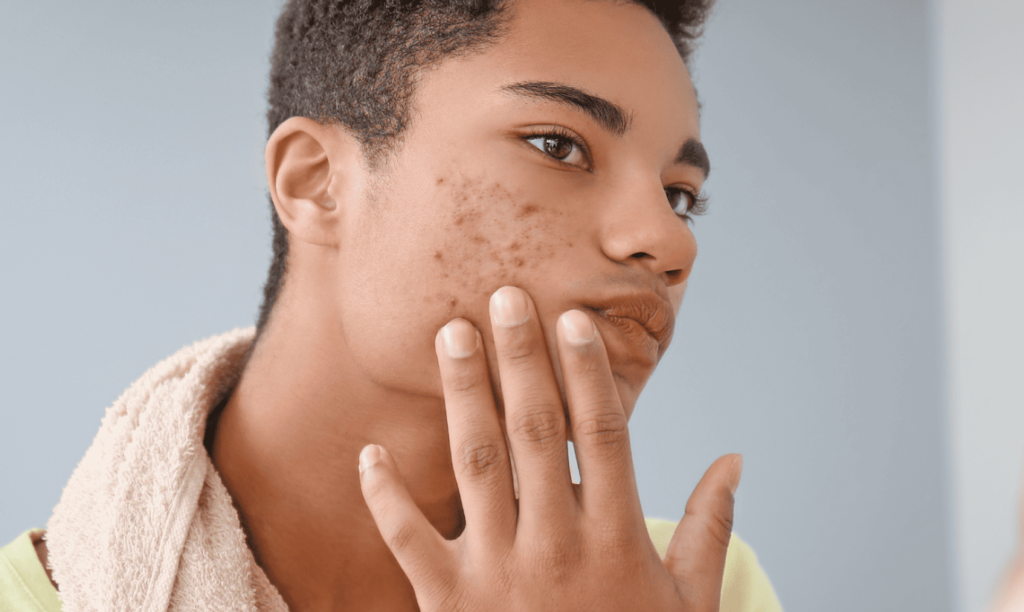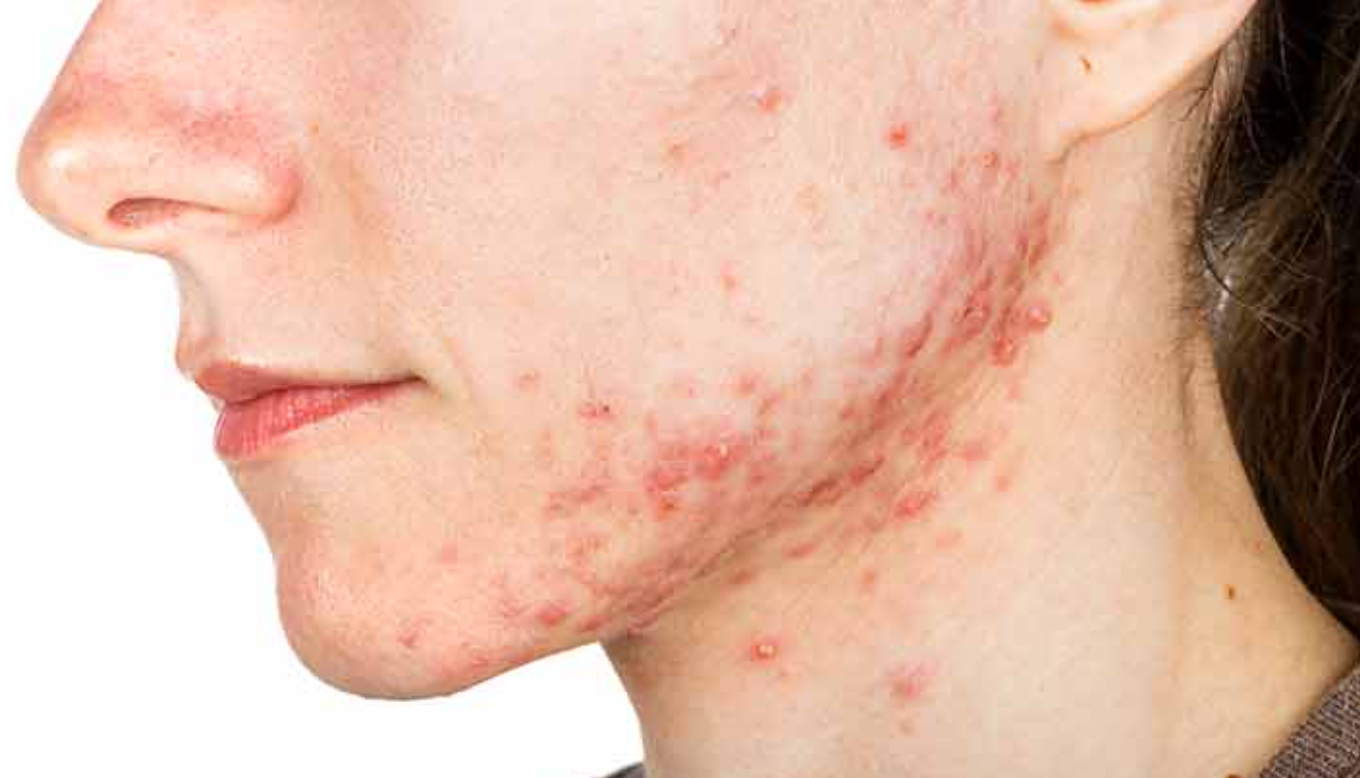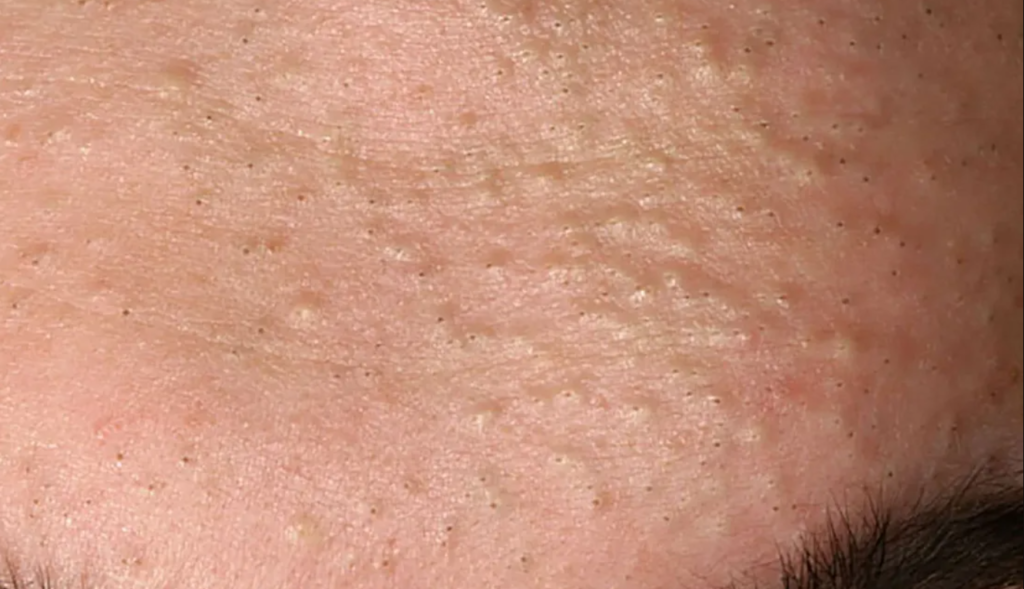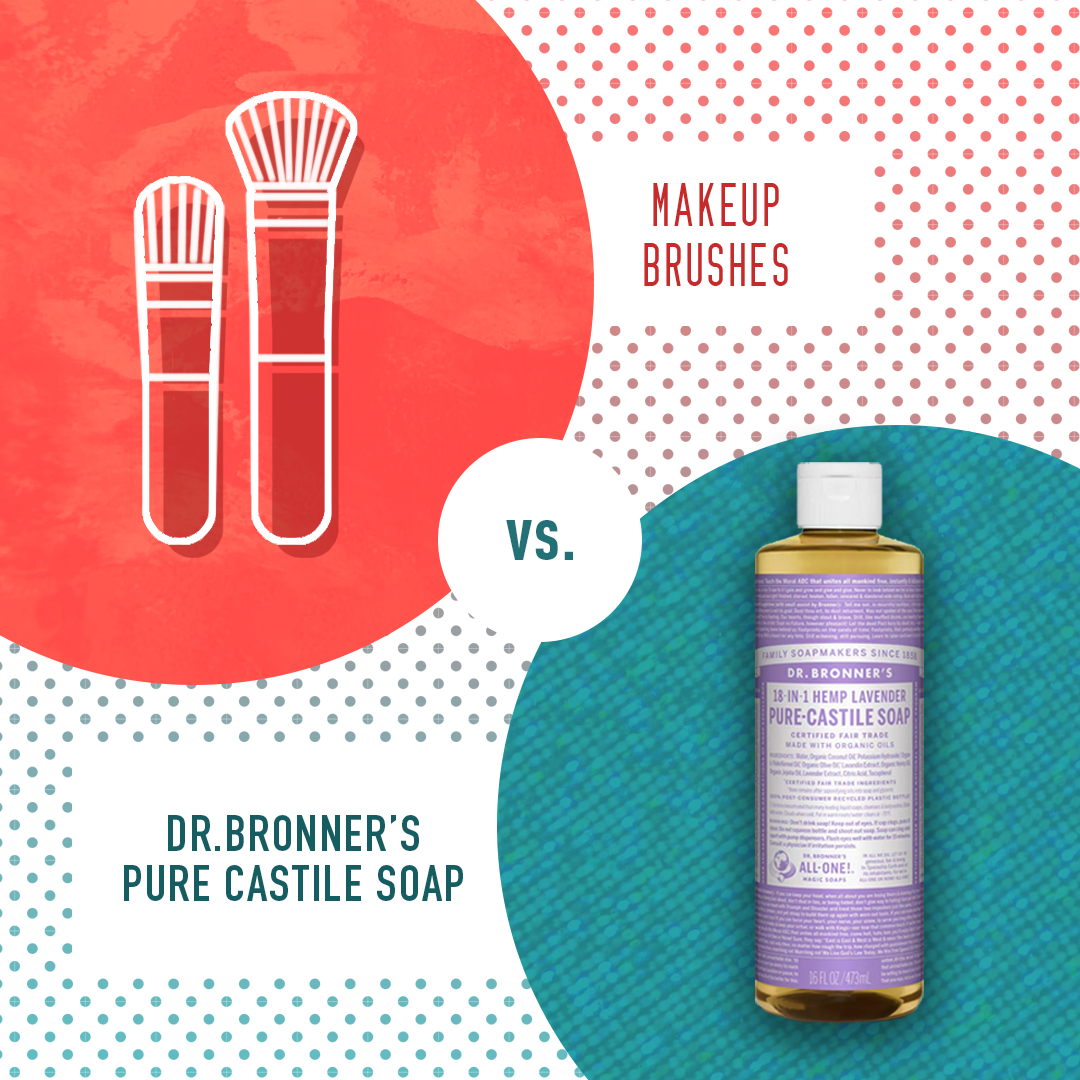The Acne-Inducing Culprits: A Comprehensive Guide to Makeup Products and Their Potential Impact on Skin
Related Articles: The Acne-Inducing Culprits: A Comprehensive Guide to Makeup Products and Their Potential Impact on Skin
Introduction
In this auspicious occasion, we are delighted to delve into the intriguing topic related to The Acne-Inducing Culprits: A Comprehensive Guide to Makeup Products and Their Potential Impact on Skin. Let’s weave interesting information and offer fresh perspectives to the readers.
Table of Content
The Acne-Inducing Culprits: A Comprehensive Guide to Makeup Products and Their Potential Impact on Skin

Acne, a common skin condition affecting millions worldwide, is often attributed to hormonal fluctuations, genetics, and stress. However, a lesser-known factor contributing to acne breakouts is the use of certain makeup products. While makeup can enhance one’s appearance, it can also inadvertently trigger or exacerbate acne if not carefully selected and applied. This article delves into the complexities of makeup and its potential impact on skin health, offering a comprehensive guide to understanding the acne-inducing culprits and navigating the world of cosmetics with informed choices.
Understanding the Link Between Makeup and Acne
The connection between makeup and acne arises from several key factors:
- Comedogenic Ingredients: Some ingredients commonly found in makeup are known to clog pores, leading to the formation of blackheads and whiteheads, the initial stages of acne. These comedogenic ingredients include heavy oils, waxes, and certain silicones, which can trap sebum (natural oil) and dead skin cells within the pores, creating a breeding ground for bacteria.
- Irritants: Certain chemicals and fragrances present in makeup can irritate sensitive skin, triggering inflammation and contributing to acne. This is especially true for individuals with acne-prone or sensitive skin.
- Improper Application and Hygiene: Applying makeup with dirty brushes or fingers, failing to remove makeup thoroughly before bed, and using expired products can all contribute to clogged pores and bacterial growth, leading to acne breakouts.
Makeup Products That Can Cause Acne
While not every makeup product is a threat to clear skin, certain categories are known to be more prone to causing acne. Here’s a breakdown of these products and the specific ingredients to be mindful of:
1. Foundations and Concealers:
- Heavy Coverage: Foundations and concealers with heavy, thick formulas are more likely to clog pores, especially those containing ingredients like talc, mineral oil, and dimethicone.
- Oil-Based Formulas: Oil-based foundations, while providing a dewy finish, can contribute to excess sebum production and clogged pores.
- Comedogenic Ingredients: Look for foundations and concealers labeled "non-comedogenic" or "oil-free" to minimize the risk of clogged pores.
2. Powders:
- Talc: Talc, a common ingredient in pressed powders, can be comedogenic and irritate sensitive skin.
- Heavy Coverage: Powders with high pigmentation can clog pores and contribute to breakouts.
- Mineral Oil: Some powders contain mineral oil, which can trap sebum and lead to acne.
3. Blush and Bronzer:
- Waxy Formulas: Blushes and bronzers with waxy formulas can clog pores and cause breakouts.
- Pigments: Some pigments used in these products can be irritating to sensitive skin.
- Shimmer: Products with excessive shimmer or glitter can trap dirt and bacteria, contributing to acne.
4. Eyeliner and Mascara:
- Oil-Based Formulas: Oil-based eyeliners and mascaras can clog pores around the eyes, leading to breakouts.
- Ingredients: Look for products free of ingredients like lanolin and beeswax, which can be comedogenic.
5. Lipstick and Lip Gloss:
- Waxy Formulas: Thick, waxy lipsticks can clog pores around the mouth, contributing to acne.
- Ingredients: Avoid lipsticks containing heavy oils, waxes, and artificial fragrances, which can irritate sensitive skin.
6. Makeup Brushes and Tools:
- Hygiene: Dirty makeup brushes and sponges can harbor bacteria, which can transfer to the skin and cause breakouts.
- Material: Synthetic brushes are generally considered more hygienic than natural hair brushes, as they are less likely to harbor bacteria.
FAQs About Makeup and Acne
1. Can I use makeup if I have acne-prone skin?
Yes, you can use makeup if you have acne-prone skin, but it’s crucial to choose products carefully and prioritize good hygiene. Opt for non-comedogenic, oil-free, and fragrance-free formulas.
2. How can I prevent makeup from clogging my pores?
- Choose non-comedogenic products: Look for labels that state "non-comedogenic" or "oil-free."
- Apply makeup sparingly: Avoid layering too many products on your skin.
- Clean your brushes regularly: Wash your makeup brushes at least once a week to remove dirt and bacteria.
- Remove makeup before bed: Never sleep with makeup on, as this can clog pores and cause breakouts.
3. What are some tips for applying makeup without triggering acne?
- Start with a clean face: Wash your face with a gentle cleanser before applying makeup.
- Use a primer: A good primer can help to create a smooth base for makeup and prevent it from settling into pores.
- Apply makeup with clean brushes and sponges: Wash your brushes and sponges regularly to prevent bacteria from transferring to your skin.
- Use a light hand: Don’t apply makeup too heavily, as this can clog pores.
- Remove makeup thoroughly: Use a gentle makeup remover to remove all traces of makeup before bed.
4. Are there any makeup products that are good for acne-prone skin?
Yes, there are many makeup products designed specifically for acne-prone skin. These products often contain ingredients that help to control oil production, prevent breakouts, and soothe inflammation. Look for products with ingredients like salicylic acid, tea tree oil, and hyaluronic acid.
5. What are some natural alternatives to conventional makeup?
- Mineral makeup: Mineral makeup is often considered good for sensitive skin as it is free of dyes, fragrances, and preservatives.
- Organic makeup: Organic makeup is made with natural ingredients that are free of harsh chemicals and synthetic ingredients.
- DIY makeup: You can create your own makeup using natural ingredients like turmeric, beetroot, and cocoa powder.
Tips for Minimizing Makeup-Related Acne
- Prioritize Skincare: A robust skincare routine is essential for acne-prone skin, even when using makeup. Cleanse twice daily, use a gentle exfoliator, and apply a moisturizer suitable for your skin type.
- Patch Testing: Before using a new product, test it on a small area of skin to check for any allergic reactions or irritation.
- Choose Water-Based Formulas: Opt for makeup products with water-based formulas, as they are less likely to clog pores.
- Avoid Over-Exfoliation: While exfoliation is beneficial, overdoing it can irritate the skin and exacerbate acne.
- Consult a Dermatologist: If you experience persistent or severe acne, consult a dermatologist for personalized advice and treatment options.
Conclusion
Makeup can be a powerful tool for enhancing one’s appearance, but it’s crucial to be mindful of its potential impact on skin health. By understanding the ingredients and formulations that can trigger acne, and by prioritizing proper hygiene and application techniques, individuals can enjoy the benefits of makeup without compromising their skin’s clarity. Choosing non-comedogenic, oil-free, and fragrance-free products, and maintaining a consistent skincare routine, are key to navigating the world of cosmetics while preserving healthy, radiant skin.








Closure
Thus, we hope this article has provided valuable insights into The Acne-Inducing Culprits: A Comprehensive Guide to Makeup Products and Their Potential Impact on Skin. We appreciate your attention to our article. See you in our next article!